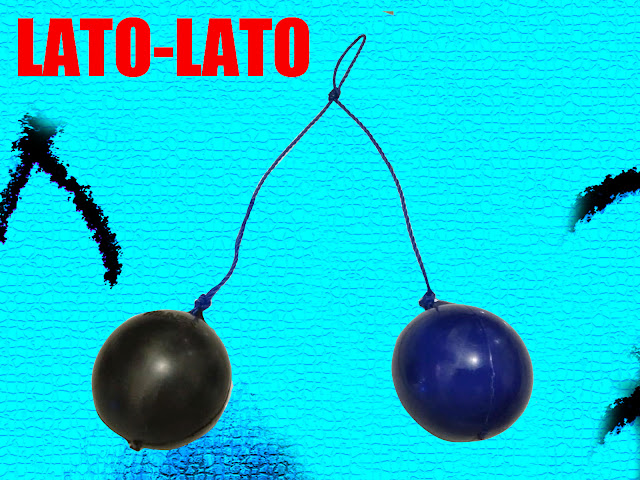Mengenal Notes Games: Kombinasi Kreativitas dan Hiburan Edukatif di Era Digital
Mengenal Notes Games: Kombinasi Kreativitas dan Hiburan Edukatif di Era Digital
Di tengah derasnya perkembangan teknologi dan hiburan digital, Notes Games menjadi salah satu jenis permainan yang unik dan inovatif. Tidak hanya menyajikan hiburan, game ini juga menjadi media untuk belajar, berekspresi, dan meningkatkan kreativitas. Apa itu Notes Games, bagaimana cara kerjanya, dan mengapa menjadi populer di kalangan pelajar, kreator konten, dan pengguna digital lainnya? Mari kita bahas secara mendalam.
1. Apa Itu Notes Games?
Notes Games adalah jenis permainan ringan yang berbasis teks atau catatan, sering kali disajikan dalam bentuk digital, baik di platform web, aplikasi, atau bahkan melalui media sosial. Permainan ini memungkinkan pengguna berinteraksi dengan ide, skenario, atau tantangan berbasis narasi pendek dan pilihan sederhana.
Contoh Notes Games bisa berupa:
- Permainan tebak-tebakan berbasis catatan
- Simulasi skenario cerita interaktif
- Pertanyaan kepribadian atau mini quiz di aplikasi catatan
- Template catatan harian yang menyisipkan tantangan atau mini game
2. Asal Usul dan Evolusi Notes Games
Awalnya, konsep Notes Games berasal dari perpaduan antara jurnal harian dan elemen permainan berbasis teks seperti interactive fiction atau text adventure. Seiring dengan meningkatnya penggunaan aplikasi seperti Notion, OneNote, dan Google Keep, pengguna mulai memanfaatkan fitur catatan untuk membuat game interaktif.
Para kreator konten di platform seperti TikTok, Instagram, dan YouTube juga mulai mempopulerkan tantangan Notes Games, dengan mengajak audiens mengikuti permainan berbasis pilihan atau catatan yang dapat disalin dan dimainkan ulang.
3. Jenis-Jenis Notes Games yang Populer
Beberapa bentuk Notes Games yang populer saat ini antara lain:
- Notes RPG (Role-Playing Game) – Game naratif sederhana dengan pilihan aksi dan hasil yang berbeda.
- Story Choices – Pemain memilih jalan cerita dari skenario pendek yang ditulis dalam catatan.
- Notes Challenge – Tantangan harian yang menguji pengetahuan, keberanian, atau kreativitas pengguna.
- Self-Discovery Notes – Game introspektif berbasis pertanyaan dan refleksi diri.
- Study Notes Games – Mini kuis atau pengulangan materi belajar dalam format menyenangkan.
4. Platform Populer untuk Membuat dan Memainkan Notes Games
Beberapa platform yang banyak digunakan untuk mengembangkan atau berbagi Notes Games antara lain:
- Notion – Dengan template interaktif, cocok untuk game berbasis pilihan.
- Google Docs/Keep – Mudah digunakan dan bisa diakses dari berbagai perangkat.
- Instagram Stories – Digunakan untuk quiz atau polling ringan sebagai bagian dari Notes Game.
- Discord Bots – Banyak komunitas gamer menggunakan bot untuk membuat game berbasis teks dan catatan.
5. Manfaat Notes Games untuk Pengguna
Notes Games tidak hanya menyenangkan, tapi juga memiliki berbagai manfaat:
- Meningkatkan Kreativitas – Game ini mendorong pengguna berpikir kreatif dalam menyelesaikan tantangan atau menulis cerita.
- Latihan Berpikir Kritis – Dalam skenario pilihan, pemain belajar mengambil keputusan dan menghadapi konsekuensi.
- Media Belajar Menyenangkan – Sangat cocok untuk siswa dan guru yang ingin membuat materi belajar lebih menarik.
- Melatih Fokus dan Daya Ingat – Game berbasis catatan juga melatih memori dan perhatian terhadap detail.
6. Notes Games sebagai Media Edukatif
Banyak guru dan pendidik kini mengadopsi Notes Games sebagai bagian dari metode pembelajaran kreatif. Dengan format yang ringan, siswa merasa lebih nyaman dan tertarik untuk berpartisipasi. Misalnya, membuat “Choose Your Own Adventure” tentang pelajaran sejarah atau membuat quiz IPA sederhana dalam catatan digital.
7. Notes Games di Dunia Konten Digital
Kreator konten digital mulai menjadikan Notes Games sebagai konten viral di platform sosial media. Misalnya:
- Konten “Pilihan A atau B” berbasis story atau teks pendek
- Notes Game challenge dengan template catatan yang bisa diunduh
- Series cerita interaktif mingguan yang diikuti oleh audiens
Interaksi tinggi dan kemudahan pembuatan menjadi alasan mengapa Notes Games banyak digunakan untuk membangun engagement audiens.
8. Tips Membuat Notes Games yang Menarik
Ingin coba membuat Notes Games sendiri? Berikut tipsnya:
- Tentukan Tema dan Tujuan – Apakah game Anda bertujuan menghibur, mengedukasi, atau memotivasi?
- Gunakan Bahasa Ringan dan Akrab – Supaya pengguna merasa terlibat dan nyaman.
- Sisipkan Pilihan Menarik – Buat game yang memiliki alur bercabang agar lebih interaktif.
- Tambahkan Elemen Visual (Jika Perlu) – Misalnya emoji, warna teks, atau gambar untuk menambah daya tarik.
- Uji Coba dan Minta Feedback – Coba game-mu ke beberapa teman untuk mengetahui apakah seru dan mudah dimengerti.
9. Notes Games VS Game Tradisional
| Aspek | Notes Games | Game Tradisional |
|---|---|---|
| Teknologi | Ringan, bisa diakses via catatan | Perlu perangkat dan grafis tinggi |
| Tujuan | Refleksi, edukasi, hiburan ringan | Hiburan penuh dan kompetisi |
| Keterlibatan |



